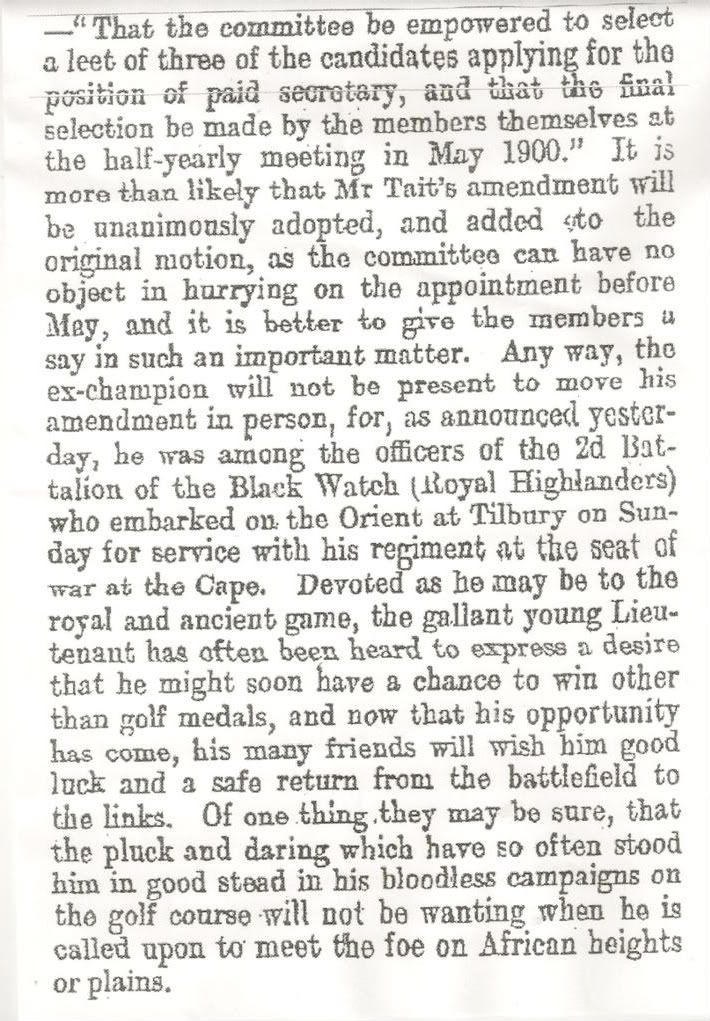Melvyn sent me these two clippings from The Scotsman 24 10 1899 that put this in context.


He also informs us that CS Grace was the last non paid secretary and that the successful applicant was Colonel R Elliot who was replaced in 1903 by Thomas Law; who in turn was replaced by Henry Gullen in 1912, who was in place until 1940.
Does anyone know anything about these characters?
£350 was a considerable sum. When Colt accepted the position at Sunningdale he was paid £130pa - July 1901. Colt however may have had the last laugh. He was certainly involved with the R&A in 1912 when it was recognised that the course had deteriorated and something must be done. He was searching for a new green keeper and the change of Secretary at about the same time may not have been a coincidence.
(Speculating: if Colt had been appointed in 1900 what changes might he have tried to instigate on TOC to cope with the new Haskell ball in 1902? Perhaps it’s best we don’t go there.)
Finally I would like to quote the following about Freddie Tait from Daniel Wexler’s Book of Golfers. (Extracted from a long obituary - by the standards of the book).
“Frederick Guthrie Tait remains, more than a century after his death, one of the most celebrated figures in the history of amateur golf. ...he became, to use a modern analogy, the Greg Norman of his day – the very longest and straightest of hitters.
Tait’s list of golfing accomplishments, though limited to the last decade of the nineteenth century, is somewhat overwhelming.” Twice he won the Amateur Championship, 1896 and 1898. “Open Championship...thrice leading amateur and, from 1896 to 1899, finished 3rd, 3rd, 5th and 7th. He reportedly played the Old course in 72 in 1894 and, we are told, an unimaginable 69 in 1897.
Unfortunately it would be this military career that would be Tait’s undoing, for as a member of the Black Watch...he shipped off to South Africa to fight the Boers in October of 1899. ..Tait was killed in early February while leading a charge at Koodoosberg Drift, a death as lamented as any in the history of golf. Later in 1900 he would be accorded a unique posthumous hour when his great friend John L Low penned FG Tait A Record, an altogether splendid account and, not incidentally, the first biography of a golfer ever written.”
It would appear therefore Tait’s last golfing action was to propose this position. Perhaps golf lost not only one of its finest players but an influential visionary who saw what was needed to administer the future of golf at St Andrews. It may be significant that Low (like Tait a member of Woking) was also a good friend of Colts and a power broker at the R&A.
Thanks Melvyn